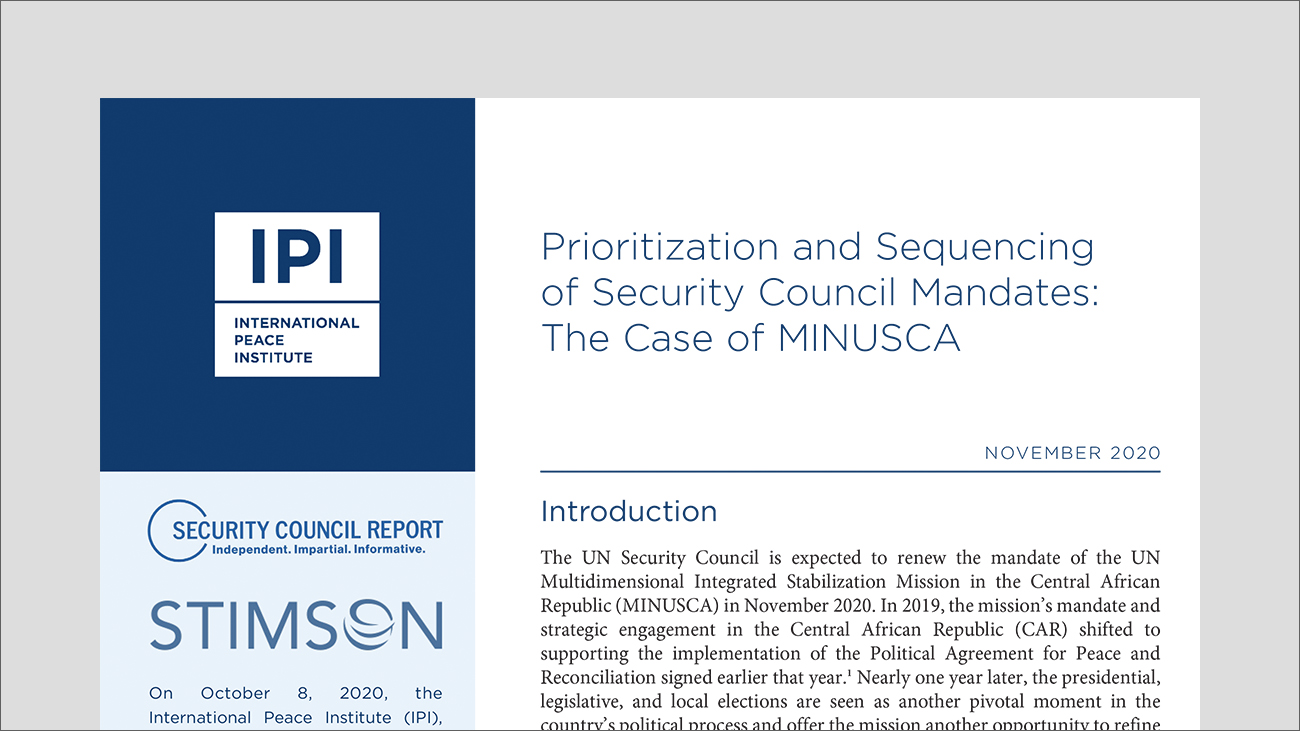
The UN Security Council is expected to renew the mandate of the United Nations Multidimensional Integrated Stabilization Mission in the Central African Republic (MINUSCA) in November 2020. In 2019, the mission’s mandate and strategic engagement in the Central African Republic (CAR) shifted to supporting the implementation of the Political Agreement for Peace and Reconciliation signed earlier that year. Nearly one year later, the presidential, legislative, and local elections are seen as another pivotal moment in the country’s political process and offer the mission another opportunity to refine its support to the country.
In this context, the International Peace Institute (IPI), the Stimson Center, and Security Council Report organized a workshop on October 8, 2020, to discuss the mandate and political strategy of MINUSCA. This workshop provided a forum for member states, UN stakeholders, and outside experts to share their assessment of the situation in the country. The discussion was intended to help the Security Council make more informed decisions with respect to the strategic orientation, prioritization, and sequencing of the mission’s mandate and actions on the ground.
Participants largely agreed that MINUSCA’s current mandate remains relevant and encompasses the areas necessary to facilitate the mission’s effective engagement on political, security, and peacebuilding issues, including the upcoming elections. Recognizing the fluidity of the country’s political situation, they cautioned against major changes to the mandate. Instead, they encouraged the mission to continue balancing between supporting the electoral process and encouraging full implementation of the peace agreement, on the one hand, and responding to humanitarian needs and protecting civilians, on the other.









